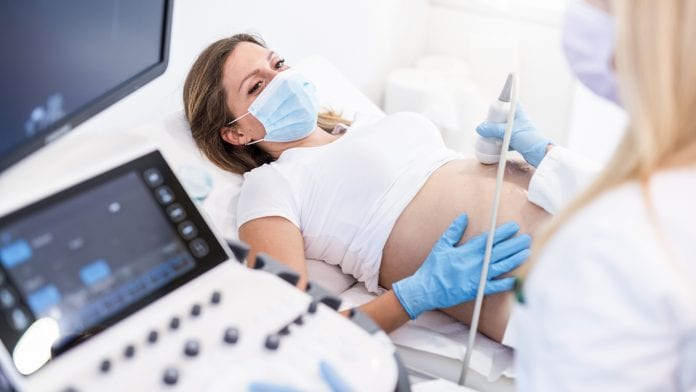
A new study has discovered that pregnant women transfer antibodies that protect against the COVID-19 virus to their babies whilst in the womb.
The study from Weill Cornell Medicine and NewYork-Presbyterian researchers shows that pregnant women who have contracted COVID-19 generate protective antibodies, often passing some natural immunity to their foetuses. The researchers say that this also supports the idea that vaccinating pregnant women may have benefits for newborns.
The study was published in the American Journal of Obstetrics and Gynecology.
COVID-19 in pregnancy
The team analysed blood samples from 88 women who gave birth at NewYork-Presbyterian/Weill Cornell Medical Center between March and May 2020, all of which had COVID-19 antibodies in their blood, indicating that they had contracted the virus at some point, despite 58% of those women having no symptoms.
The researchers say that antibodies were detected in both symptomatic and asymptomatic women and observed that the concentration of antibodies was significantly higher in symptomatic women.
Dr Yawei Jenny Yang, an assistant professor of pathology and laboratory medicine at Weill Cornell Medicine and the study’s senior author, said: “Since we can now say that the antibodies pregnant women make against COVID-19 have been shown to be passed down to their babies, we suspect that there’s a good chance they could pass down the antibodies the body makes after being vaccinated as well.”
They also found that pregnant women have the same kind of immune response to the virus as the larger patient population.
Natural protection for babies
The findings also showed that 78% of babies born to the women had detectable antibodies in their umbilical cords, with no evidence of the babies having been infected with the virus. Newborns with symptomatic mothers also had higher antibody levels than those whose mothers had no COVID-19 symptoms, suggesting that pregnant women could pass along vaccine-generated antibodies in the same way, potentially shielding both mother and child from future infection.
The researchers highlight that it is not yet known exactly how protective the antibodies might be or how long that protection might last.
Dr Laura Riley, chair of the Department of Obstetrics and Gynecology at Weill Cornell Medicine, obstetrician and gynaecologist-in-chief at NewYork-Presbyterian/Weill Cornell and one of the study’s co-authors, said: “The million-dollar question is: Will the group of women who are now being vaccinated get the same type of protection? We don’t know that yet. Getting those answers is going to be really important.”
The team is leading follow-up investigations that are currently enrolling pregnant women who receive the vaccine, as well as vaccinated mothers who are breastfeeding, to assess the antibody response in those groups after vaccination.







